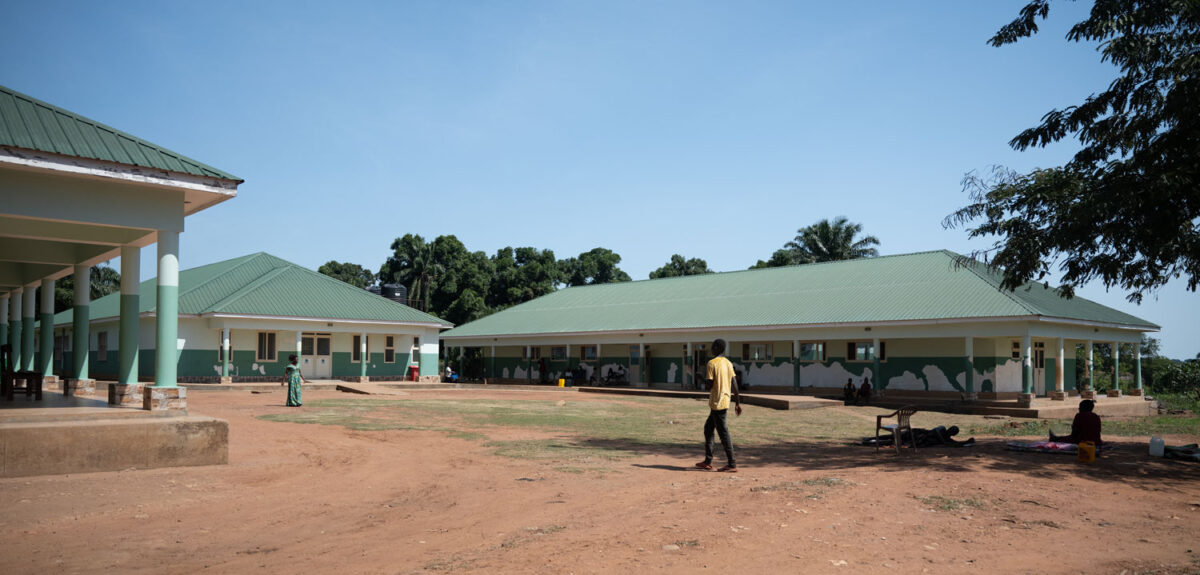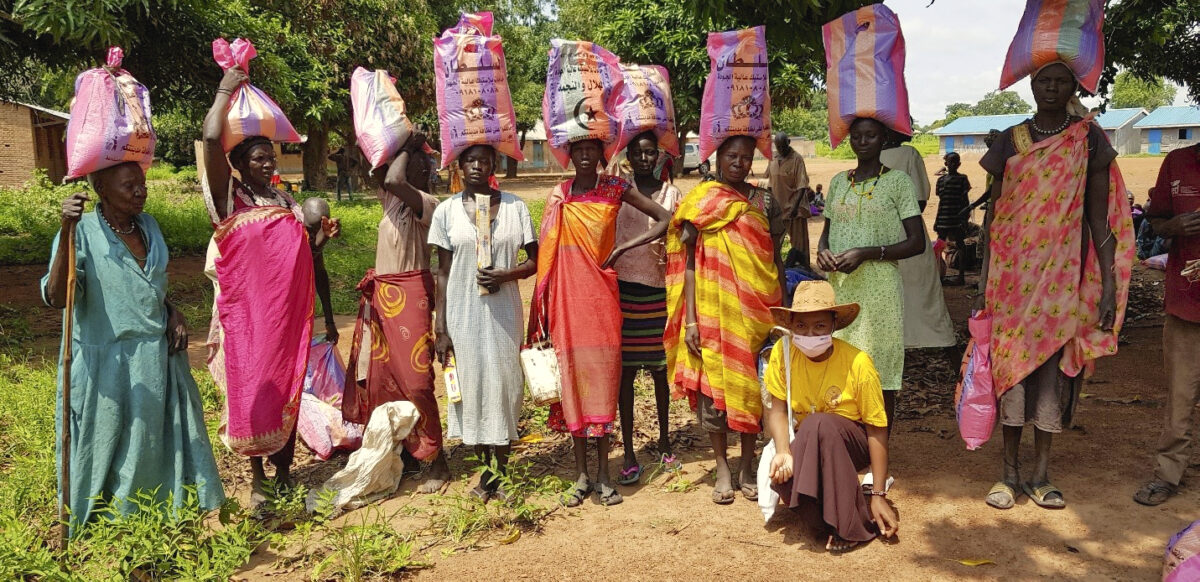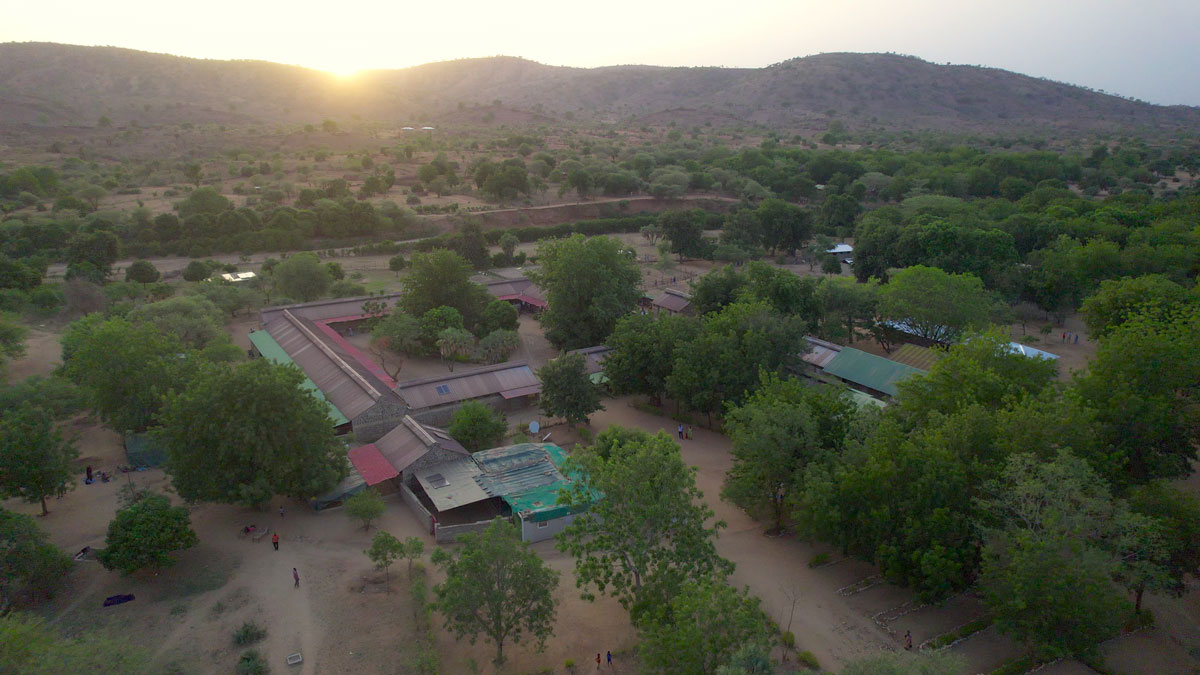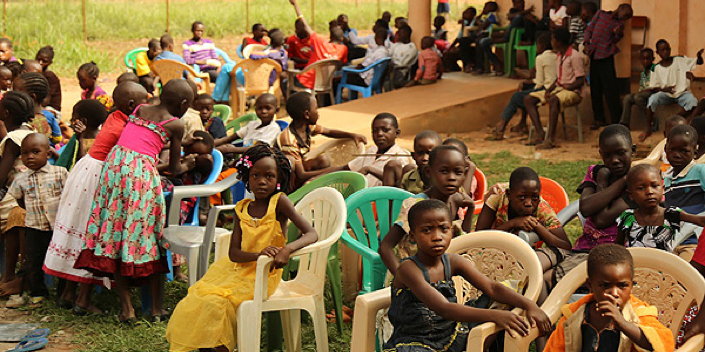
Eating Lilies, Leaves and Locusts
“As long as my children are alive, I’ll keep going.”
Families are taking unimaginable measures to feed their children as famine escalates in the Sudan.
In parts of South Sudan, people are surviving on water lilies.
“People are eating leaves and locusts to try survive because there is no food” – Aid Worker
“I am just so, so tired,” says Nyaguey, a 43 year-old mother. Before the land became flooded, she was a corn farmer with a small but livable income. She could buy staples and afford shoes for her children.
Now her home is submerged. Her village is one of the last remnants of land above water. Her days are consumed by slogging through floodwaters to search for underwater stalks of the water lily plant which is now their only food source.
Some who venture into the swamps die of poisonous snake bites from the endemic predators in the murky water. Others suffer chronic diarrheal illnesses. All have become malnourished.
Retrieving the roots from the water is only the beginning. The stalks are bitter, hard for the body to digest, and have little nutrition. Transforming them into something edible requires hours of manual labor to cut, pound, dry, and sift.
Despite the risks and grueling work, Nyaguey returns each day to repeat the exhausting process. “What other choice is there?” she asks. “As long as my children are alive,” she says, “I’ll keep going.”
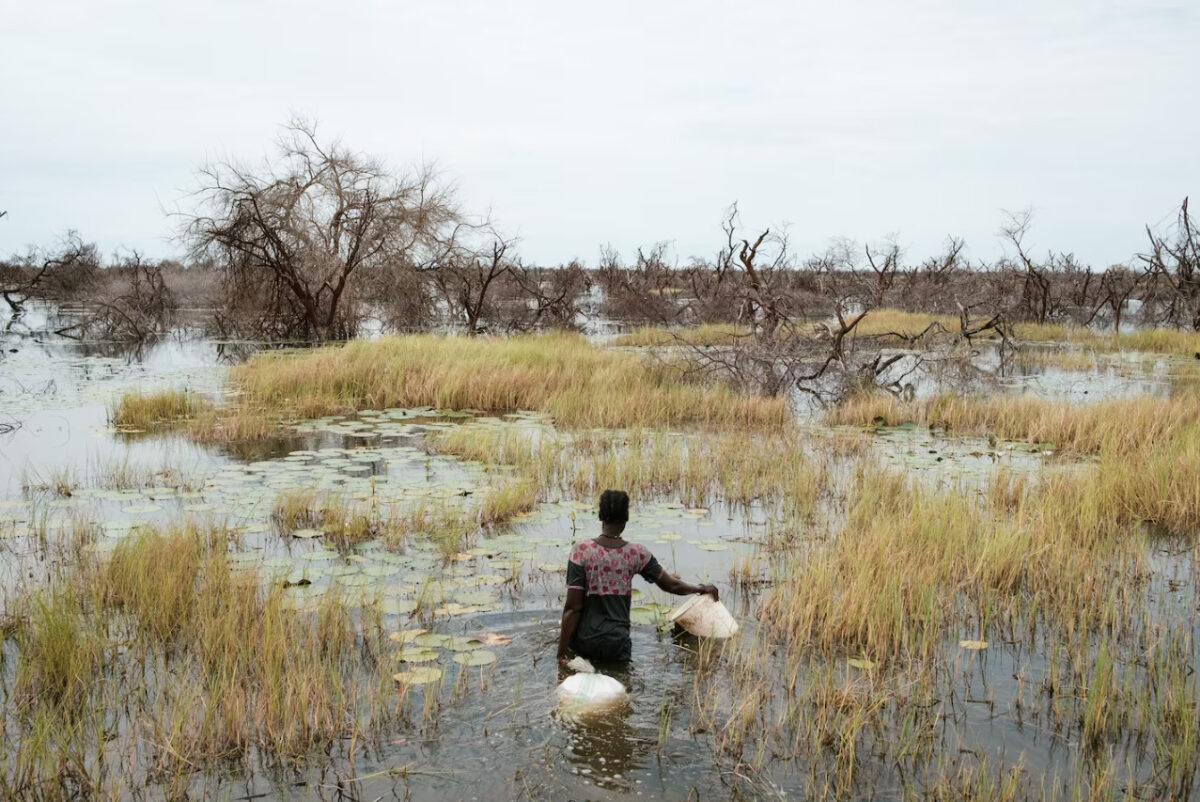
A mother slogs through floodwaters on her daily ritual to search for
water lily roots — the only food they have left.
No one is exempt from the famine here, not even government officials. “Even I eat the water lilies, and I’m in government,” said Kim Kiir, a local administrator in one of the affected regions.
Parts of South Sudan have been covered by standing floodwaters nearly the size of Lake Michigan for over two years. So for now, people like Nyaguey will get up and wade through the waters once again in search of food, simply trying to survive another day.
In the remote Nuba Mountains of Sudan, famine has driven starving families to other desperate measures. Food has become so scarce, people are eating leaves off the trees and locusts to fend off starvation.
“If there is no help from humanitarian organizations, we don’t know what will happen,” said Kafirad Kuku Kajam Tia of the SRRA, a relief and rehabilitation organization working in Sudan.
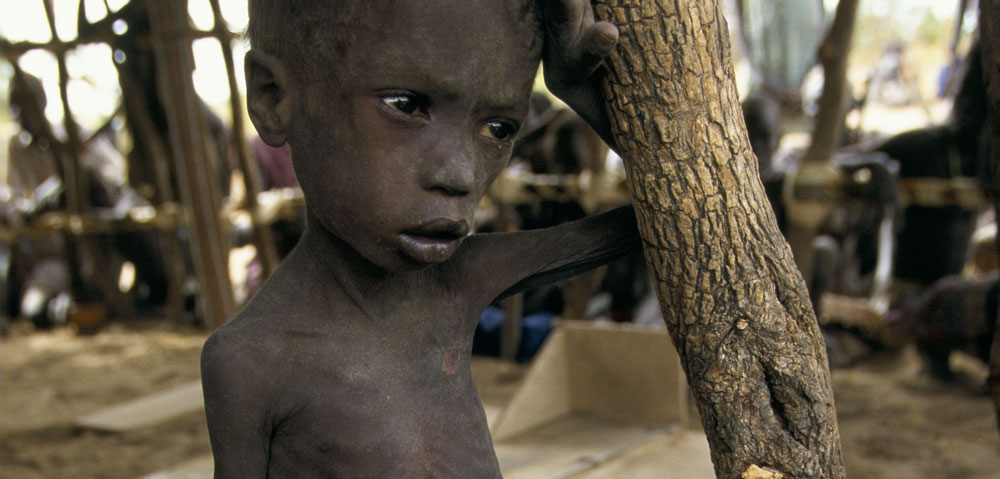
As the world looks the other way, starving children resort to
eating tree leaves and locusts in a horrific food crisis.
In this agrarian region, people rely on crops for sustenance farming. Last year’s yield was crippled by bad rains. An attack of locusts followed, destroying the meager remnants of crops that survived.
The war in Sudan is making the food shortage even worse. The arrival of refugee families escaping war has meant there’s even less food to go around. Even so, the Nubans share the pittance they have with displaced families, even if it means consuming the insects to stay alive – something difficult to imagine in the western world.
“The little food people collected for their families was shared with the people displaced from Khartoum, neighboring states and counties, and it is now finished,” said Kuku.
Meanwhile, commodity prices have skyrocketed from the ongoing war, and supply routes are choked off. This leaves the people in remote areas like Nuba almost completely isolated.
Kuku says the area has received zero humanitarian aid since the war broke out back in April of last year. He appealed for humanitarian agencies and well-wishers to remember them and rescue them. “The situation is worsening every day,” he reported.
Since the beginning of the famine, Sudan Relief Fund has been working with our networks on the ground to distribute emergency food, clean water, and medicine to affected areas in South Sudan, and in refugee camps filled with war-displaced families from Sudan.
We’ve been able to reach many. But there’s a staggering need for more resources to stop starvation and prevent widespread catastrophe. Already families are barely surviving. Please send a gift of any amount to help with this ongoing crisis.
If you can, consider becoming a monthly sustaining supporter, which makes it possible to ensure reliable, consistent help for people in crisis – something so needed in our world of uncertainty. Each one of us can make a difference.


